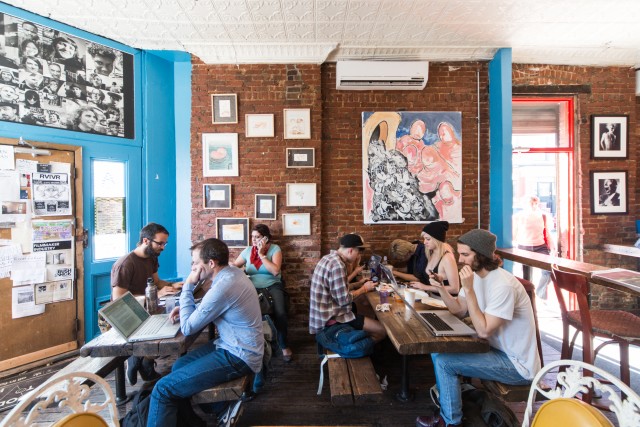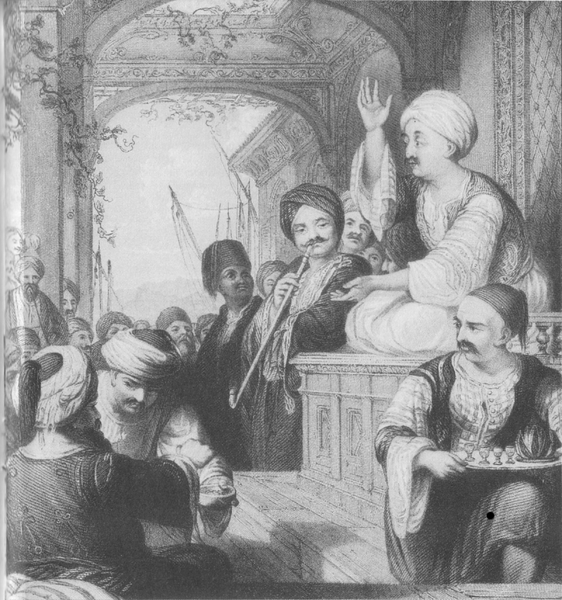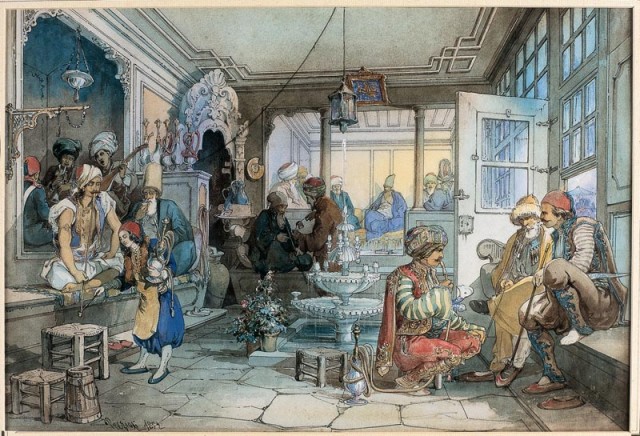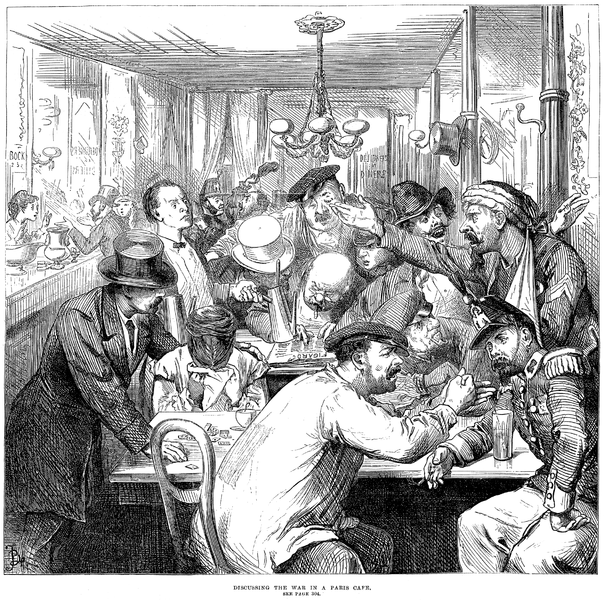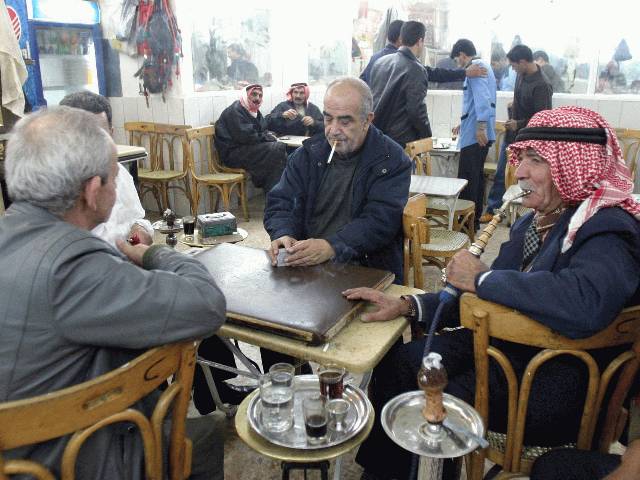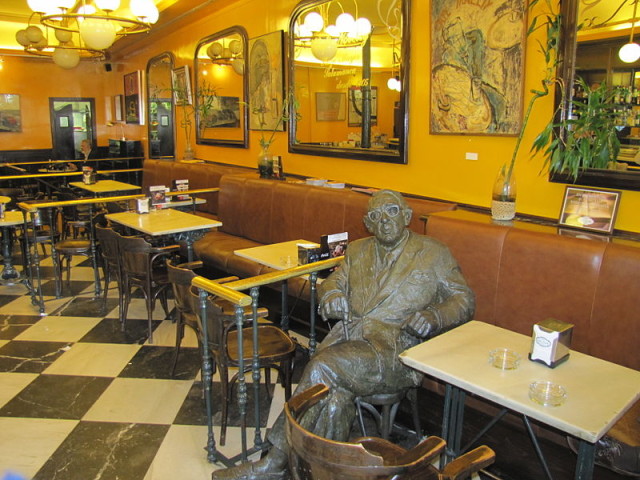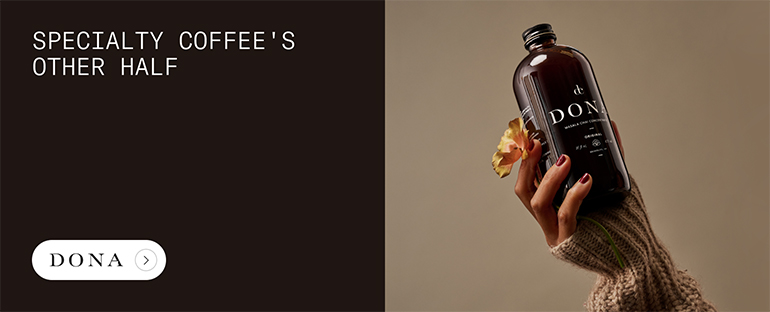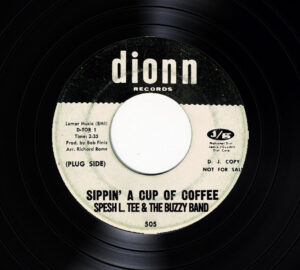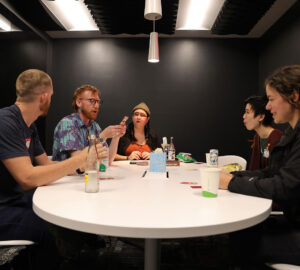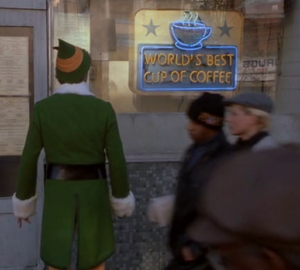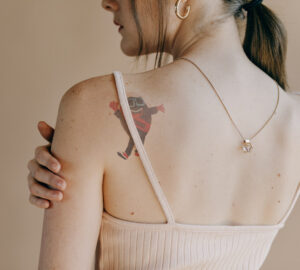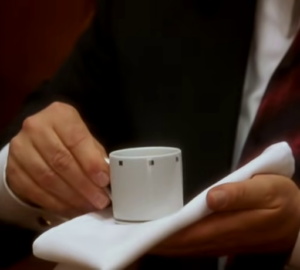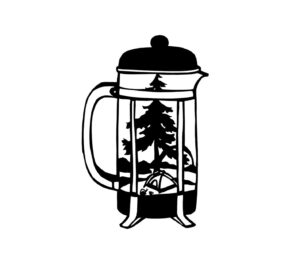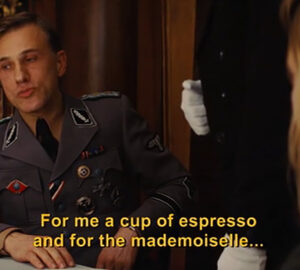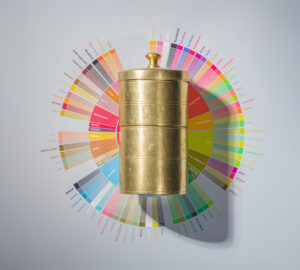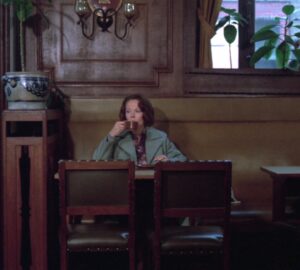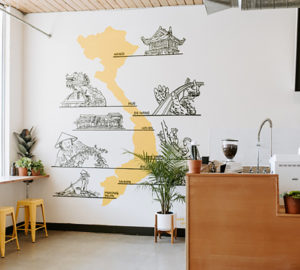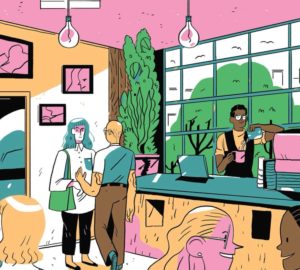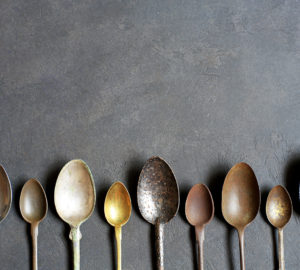Many believe that the act of “camping,” (turning a coffee shop into one’s own personal office or lounge space for hours on end) is a new development in the history of cafe culture. We’re here to tell you that this absolutely not true. Camping has been around as long as the coffee house, and long before the advent of wifi, freelance journalism, and the MacBook Air.
Don’t believe us? Let’s journey through the pages of history.
Ottoman Empire, 16th Century Camping
The above picture shows one of the first coffeehouses in the world, in Istanbul. Early campers would sit around all day, discussing art and politics, and enjoying performances, like one-man spoken word meddah performances–an early version of The Moth, basically.
London, 17th Century Camping
London’s coffee culture developed in the 17th century, and subsequent generations of Britons have refined an advanced camping culture in the years since. Cafe campers in London helped advance the literary arts, writing some of the first newspapers and creating global businesses like Lloyd’s of London and the London Stock Exchange. Camping in fact became so entrenched that some coffee houses would rent out booths (complete with privacy curtains or doors!) for customers to use as offices for their businesses. Today’s London cafe campers represent all stripes of society, from the little old lady lingering over her lunch to the posh young couple with baby in tow, each just taking their time.
Istanbul, 18th Century Camping
Back to Istanbul, where by the 18th century camping had been elevated to a serious pursuit of pleasure, accompanied by such leisurely pastimes as smoking the hookah, listening to music, and enjoying table games. Look at that picture up above. Fountains? Silken garments? Cool hats? Who would order to-go in this situation? Nobody, that’s who. This cafe rules on people watching alone.
It got so bad that a number of Sultans tried to ban people hanging out in coffee houses, on pain of death, though that might have had something to do with political unrest. These Sultanic edicts were of course unsuccessful in stopping the coffee house chilling juggernaut.
Paris, 19th Century Camping
The café in Paris became an important daily ritual, often twinned with a similar camping session in the evenings dans le comptoir. The French truly elevated camping to a whole new level–some patrons were even known to give their favorite café as their mailing address! Revolt was fermented, passions inflamed, and many great works of written art composed in those beautiful, halcyon days before the introduction of the 2 hour wifi limit.
Damascus, 20th Century Camping
Just look at these dudes: they are seriously kicking it, with some shisha, some backgammon, probably a couple of kinds of coffee and tea options, plus a big cooler full of sodas and juice. There’s a TV on somewhere in this bar too, and the four bros we see seated above have likely known each other for decades, so between the stories and the stories ain’t nobody leaving. This is camping as high art.
The Permanent Camper, Spain
Writer Gonzalo Torrente Ballester, the Patron Saint of Cafe Lingering, permanently camps at Café Novelty in Salamanca, Spain, founded in 1905. Ballester was a novelist, screenwriter, essayist, journalist, political activist, academic and playwright, and he basically did it all by hanging out in cafes all day. We’d be trying to get him to write for Sprudge today, had he not sadly passed away more than 15 years ago.
Still, he remains a brilliant node of inspiration for the tab delayers, the refill orderers, and the outlet seekers among us, those who camp proudly, and without shame, creating brilliant works (or even just lightly emailing) between endless cups of coffee. For when we camp, dear souls, it is done in the tradition of great men like Gonzalo Torrente Ballester. May he forever be in no rush to leave.
All photos smurfed from Wicklepedia, where knowledge is power. Top photo of Little Skips in Brooklyn by D. Robert Wolcheck.











